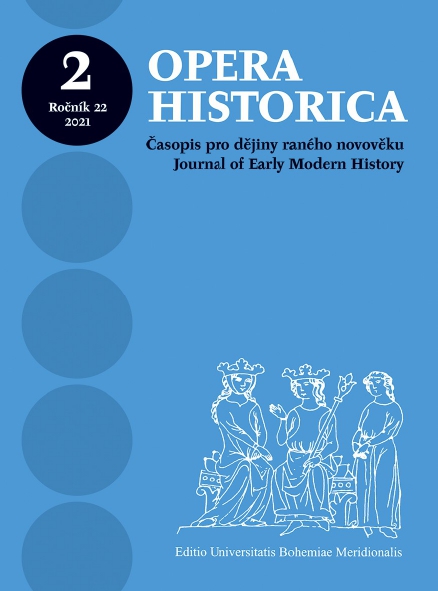Karel starší ze Žerotína a Karel I. z Lichtenštejna
Charles the Elder of Žerotín and Charles I of Liechtenstein
The intertwined fates of two Moravian politicians in the post-White Mountain period
Author(s): Tomáš KnozSubject(s): Political history, 17th Century
Published by: Jihočeská univerzita v Českých Budějovicích
Keywords: Charles the Elder of Žerotín; Charles I of Liechtenstein; Bohemian Revolt; Thirty Years’ War; White Mountain period
Summary/Abstract: Charles the Elder of Žerotín and Charles I of Liechtenstein are considered by modernhistoriographers dealing with early modern times to be important figures in Moravian,Czech and Central European history. Reflections on issues of status and proto-parliamentarismas well as the rise of new princely elites, issues of freedom of faith and culturaland artistic patronage are relevant to them. Interest in Charles the Elder of Žerotín at thepresent time has led to the publication of his newly discovered correspondence, to an appreciationof his language, epistographical style, political and legal education and, last butnot least, his moral values. The personality of Charles of Liechtenstein, on the other hand,has become the subject of polemic and controversy. On the one hand, Liechtenstein usedto be presented as an upstart. Emphasis was placed on his conversion, his role in the currencyconsortium, his participation in the defeat of the Bohemian Uprising and in thepunishment of its supporters. On the other hand, it is possible to encounter a defence forhim when Liechtenstein is portrayed as an aristocrat seeking compromise and protectingthe emperor’s enemies, emphasizing his role as the founder of a major princely dynasty,an expert on architecture, a patron of artists and a collector of works of art. A study ofŽerotín and, to a limited extent, Liechtenstein sources indicates that the relationshipbetween the two representatives of the White Mountain became more intense at a timewhen Žerotín and Liechtenstein came into closer contact for personal or political reasons,or can be described as socially tense. Leaving aside the period of their shared studies inMoravia and Western Europe, there are the period of Liechtenstein’s tenure of the officeof governor of Moravia, the Moravian resistance against Emperor Rudolf II, his period asgovernor of Žerotín, the period of the Bohemian and Moravian uprising, and at the sametime Liechtenstein’s „Bohemian mission” as imperial viceroy. The irregular frequency oftheir mutual contacts and the destruction of documents do not make it possible to findout what happened in the „interim periods”. All this has led historians dealing with theaforementioned issues to attempt reconstructions of sources and interpretations, and consequentlyto construct various historical myths.
Journal: Opera Historica
- Issue Year: 22/2021
- Issue No: 2
- Page Range: 323-353
- Page Count: 31
- Language: Czech

